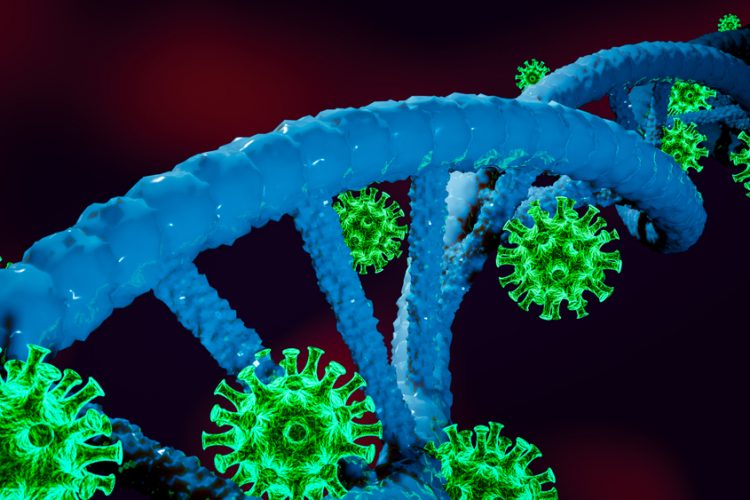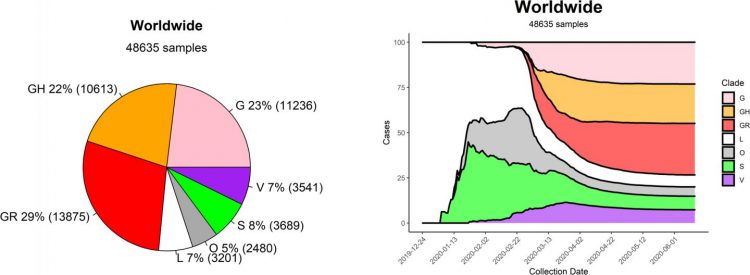Largest sequencing study of SARS-CoV-2 presents six separate strains
Posted: 6 August 2020 | Victoria Rees (Drug Target Review) | No comments yet
Researchers have sequenced SARS-CoV-2, revealing at least six strains with little variability, useful information for vaccine developers.

Researchers have released the results of the most extensive study carried out on SARS-CoV-2 sequencing. According to the scientists, SARS-CoV-2 presents at least six strains. Despite its mutations, the virus shows little variability which is beneficial for those working on a viable vaccine.
The study was conducted at the University of Bologna (UniBo), Italy. The researchers drew from the analysis of 48,635 coronavirus genomes, which were isolated by researchers in labs all over the world. This allowed them to map the spread and the mutations of the virus during its journey to all continents.
The first results indicate that SARS-CoV-2 presents little variability, with approximately seven mutations per sample. Common influenza has a variability rate that is more than double.
“The SARS-CoV-2 coronavirus is presumably already optimised to affect human beings and this explains its low evolutionary change,” explained Federico Giorgi, a researcher at Unibo and co-ordinator of the study. “This means that the treatments we are developing, including a vaccine, might be effective against all the virus strains.”
Currently, there are six strains of novel coronavirus. According to the team, the original one is the L strain, that appeared in Wuhan in December 2019. Its first mutation – the S strain – appeared at the beginning of 2020, while, since mid-January 2020, the V and G strains have appeared. To date, strain G is the most widespread: it mutated into strains GR and GH at the end of February 2020.
“Strain G and its related strains GR and GH are by far the most widespread, representing 74 percent of all gene sequences we analysed,” said Giorgi. “They present four mutations, two of which are able to change the sequence of the RNA polymerase and Spike (S) proteins of the virus. This characteristic probably facilitates the spread of the virus.”

The most extensive study ever carried out on SARS-CoV-2 sequencing revealed six strains of the virus [credit: Frontiers in Microbiology].
Besides these six main coronavirus strains, the researchers identified some infrequent mutations that, at the moment, are not worrying but should nevertheless be monitored.
“Rare genomic mutations are less than one percent of all sequenced genomes,” said Giorgi. “However, it is fundamental that we study and analyse them so that we can identify their function and monitor their spread. All countries should contribute to the cause by giving access to data about the virus genome sequences.”
The study was published in Frontiers in Microbiology.
Related topics
Genomics, Research & Development, Sequencing, Vaccine
Related conditions
Coronavirus, Covid-19
Related organisations
University of Bologna
Related people
Federico Giorgi






